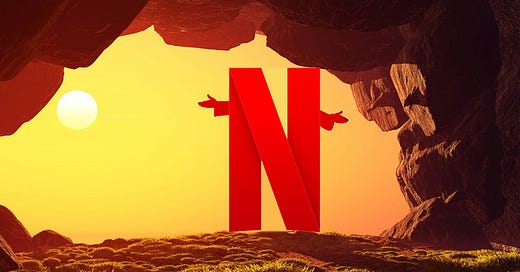THB # 126: Resetting AN (After Netflix)
I have, for years, been pretty lonely out on the pro-theatrical on revenues, Netflix is wildly overpriced, others can catch up, and streaming will become TV road.
All those hares who ran out ahead and argued that buying Netflix over $500 a share was not only smart, but it was way too low a price - and now, gaming! - took a nap while this tortoise passed them in January and then lapped them last Tuesday.
But the hares are awake again, and they are running as fast as they can to not only take up this ol’ hare’s position, but to top it. “Netflix is dead! Netflix sucks!”
Oy. Exhausting.
Here is the skinny (forgive me if i am repeating some things)… Netflix is still Netflix. What it needs to change, it needed to change 3 years ago. What works, works. What doesn’t work has not worked for years already. And both the working and the not working is going to change a bit every single year.
We all need to learn to separate the ingredients when we are cooking. Business is complex. The human desire to…
Keep reading with a 7-day free trial
Subscribe to The Hot Button by David Poland to keep reading this post and get 7 days of free access to the full post archives.




